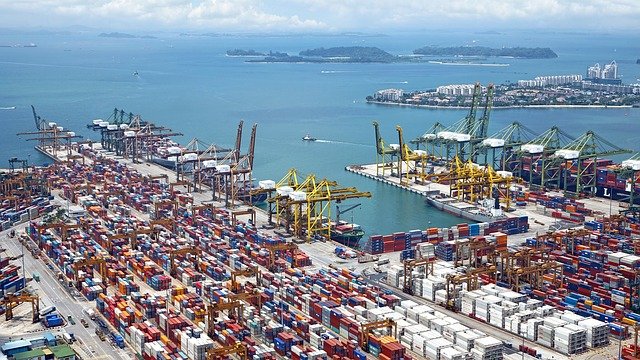As India started the distribution of COVID-19 vaccination from the Serum Institute of India’s facility in Pune in Maharashtra kick started on January 16, the transportation of this vaccine involved a whole lot of planning the entire logistics functions. The pre-Covid era saw cold chain logistics as a need only by a few business verticals such as ice-cream industry, frozen food, fresh produce from across
the globe, dairy industry and a few pharmaceuticals companies that had to maintain certain drugs under strict temperature regime during and after transport.
A part from these few industries, cold chain logistics was completely shrouded in the dark considered only to be a painstaking plus an expensive process to put together a robust cold chain logistical system accessed by a few niche industry sectors that needed them the most. Today, in the post- Covid era and especially after the vaccine being introduced, India as a country has woken up to a new era in the field of logistics or has given rise to the dawn of a hidden star called cold chain logistics.
The Indian Cold Chain industry was expected to grow annually at 28% the total value of cold chain industry in India is expected to reach ~USD 13 billion through increased investments, modernization of existing facilities, and establishment of new ventures via private and government partnerships thereby, presenting a great opportunity for foreign companies. Cold stores are the major revenue contributors of the Indian Cold Chain industry and are majorly used for storing various food and pharmaceutical products. However, the market which was gradually getting organised and realigning their focus towards multipurpose cold storages facilities are rising.
According to industry estimates, approximately 104 million metric tons of perishable produce is transported between cities each year and key growth drivers include meat productsexport, rising demand for confectionary, frozen food etc.The Government of India had recognised the need for development of cold chain logistics as an essential next step in upgrading India’s logistical footprint across the globe and therefore had worked out various incentives for promoting growth within the logistical sector by developing road and rail infrastructure, development of ocean ports and air cargo divisions across the country. The Indian markets started witnessing a transition from being a traditional cold storage facility to a fully integrated cold chain projects which would bring about efficiency and increased productivity of cold chain companies in the post-Covid era.
With favourable government initiative such as subsidy schemes for setting up a cold storage facility and purchasing standalone reefer vehicles and SAMAPADA Scheme will support the development of cold chain infrastructure. Moreover, major dairy companies, retail chains and online grocers have received federal approval to set up 101 cold chains which will bring in an investment of INR 3,100 crore in the sector.
Such developments and growing investment from public and private sector is projected to propel the market revenue. Piyush Goyal, Union Minister of Commerce and Industry & Railways, reviewed the draft National Logistics Policy and the proposed action plan for implementation of the policy prepared by the Department of Logistics, Ministry of Commerce and Industry. The draft National Logistics Policy has been prepared in consultation with the Ministries of Railways, Road Transport and Highways, Shipping and Civil Aviation. Forty-six Partnering Government Agencies (PGAs) inputs were analysed in detail for consideration in the Policy.
He also said that a central scheme for cold chain across the country especially for fruits, vegetables and perishables may be made part of the action plan of the draft logistics policy so that it improves efficiency and reduces the loss in agricultural produce of farmers. The path forward in developing a state of the art logistical corridor for India is becoming very clear as the country gears up to implement some significant changes. These changes in the logistical sector not only brings growth to the countries revenues it also opens up door to various employment opportunities. Currently the logistical sector in India employs more than 35 million plus people and the sector is expected to the largest job creator in the country by 2022 as claimed by market experts and various market reports.




